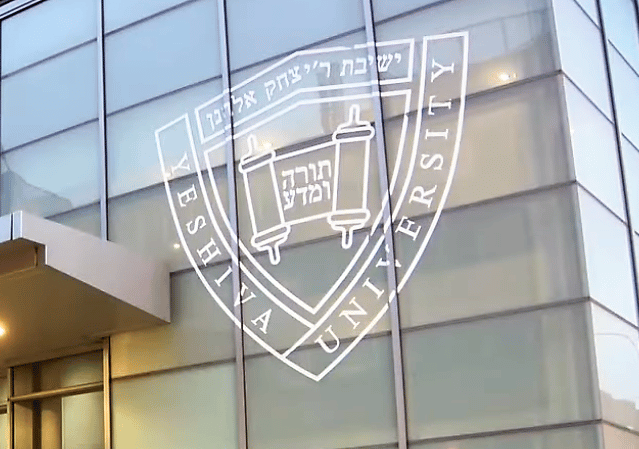Yeshiva U Fight Against Order It Recognize Student Pride Alliance Suffers Blow When Denied “Leave To Appeal” to NY High Ct

Yeshiva University’s ongoing legal battle with the LGBTQ club “Pride Alliance” will not be going to the state’s highest court, at least not for now. Last week, the Appellate Division of the New York Supreme Court denied the school’s request to appeal its decision to the Court of Appeals.
As we reported in January, the Orthodox Jewish university sought leave to appeal from the court’s ruling affirming the trial court’s order this past summer requiring Yeshiva University (YU) to recognize an official “Pride Alliance” student club, against its religious convictions.
We’ve covered the ongoing legal battle between the Orthodox Jewish university and the student Pride Alliance here:
- New York Court Forcing Yeshiva University to Accept LGBT Club on Campus
- Justice Sotomayor Stays NY State Court Order Forcing Yeshiva University To Recognize “Pride Alliance” Club
- Yeshiva University Must Recognize LGBTQ Student Group For Now, After SCOTUS Vacates Stay As Premature
- Pending Return to SCOTUS, Yeshiva University Freezes All Student Group Activities Rather Than Recognize LGBT Alliance
- Yeshiva University and ‘Pride Alliance’ Agree To Stay Of State Court Order That Forced School To Officially Recognize LGBT Group
- Yeshiva University Must Recognize LGBTQ Club, Appeals Court Rules
- Yeshiva University Inches Its Way Back To SCOTUS By Appealing LGBTQ Club Ruling To NY’s Highest Court
- NYC Comptroller to Yeshiva University: Recognize LGBTQ Club or Risk Public Funding
YU’s lawyer, Eric Baxter, senior counsel at the Becket Fund, told The YU Commentator that they anticipated the court’s decision:
“The Court’s ruling is not unexpected: In New York, intermediate appeals to the Court of Appeals are rarely granted,” said Baxter. “The University sought the ability to appeal so that the legal issues could be finally resolved before Plaintiffs would be required to produce documents or give depositions. Unfortunately, Plaintiffs’ counsel refused to support the appeal, choosing instead to push first for monetary damages against the University.”
According to the school paper, YU’s liability for damages to the plaintiffs claiming the school violated the New York City Human Rights Law (NYCHRL) will be decided by the NY County Court—whose judge ruled last June that YU violated the law.
A date for trial has not been set as the parties are still in the middle of discovery: “The parties will press forward with discovery,” Baxter told the paper, “after which Yeshiva can appeal to the Court of Appeals and, if necessary, the United States Supreme Court.”
If YU does come before the Supreme Court, it will be for the second time. As we reported in January, YU’s appeal to the state’s highest court was the latest step on its path back to the Supreme Court following its September ruling denying the school’s request for emergency relief.
The Supreme Court majority sent the university back to state court to finish out the appeals process, inviting them to return if they “seek and receive neither expedited review nor interim relief from the New York courts.”
Alito, joined by Thomas, Gorsuch, and Barret dissented:
The court denied Yeshiva’s request for a stay pending appeal, and when the University applied to the Appellate Division and the Court of Appeals for interim relief, those courts refused without providing a single word of explanation. As a last resort, Yeshiva turned to this Court, but the majority—for no good reason—sends the University back to the state courts. The upshot is that Yeshiva is almost certain to be compelled for at least some period of time (and perhaps for a lengthy spell) to instruct its students in accordance with what it regards as an incorrect interpretation of Torah and Jewish law.An applicant may obtain a stay pending appeal if it makes a strong showing (1) that it would likely prevail if review is granted, (2) that it will suffer irreparable harm during the time it takes for the completion of the appellate process, and (3) that neither the interests of other parties nor those of the public militate in favor of denial. Nken v. Holder, 556 U. S. 418, 434 (2009). Yeshiva easily satisfies all these requirements.…Unless a stay is granted, Yeshiva will be required to recognize the Alliance as an official student group and to grant it all the privileges extended to other such groups. As the Alliance has contended, this would force Yeshiva to make a “statement” in support of an interpretation of Torah with which the University disagrees. The loss of First Amendment rights for even a short period constitutes irreparable harm….The majority does not address our well-established standard for granting a stay but instead suggests that we cannot grant a stay because the New York courts have not entered a final order. But the state courts’ denial of interim relief constitutes a final order under National Socialist Party of America v. Skokie, 432 U. S. 43, 44 (1977) (per curiam)….I doubt that Yeshiva’s return to state court will be fruitful, and I see no reason why we should not grant a stay at this time. It is our duty to stand up for the Constitution even when doing so is controversial.
Once the school is back before the Supreme Court, the four dissenting justices predicted success: They are “likely to vote to grant certiorari,” and “Yeshiva would likely win if its case came before us.”
CLICK HERE FOR FULL VERSION OF THIS STORY